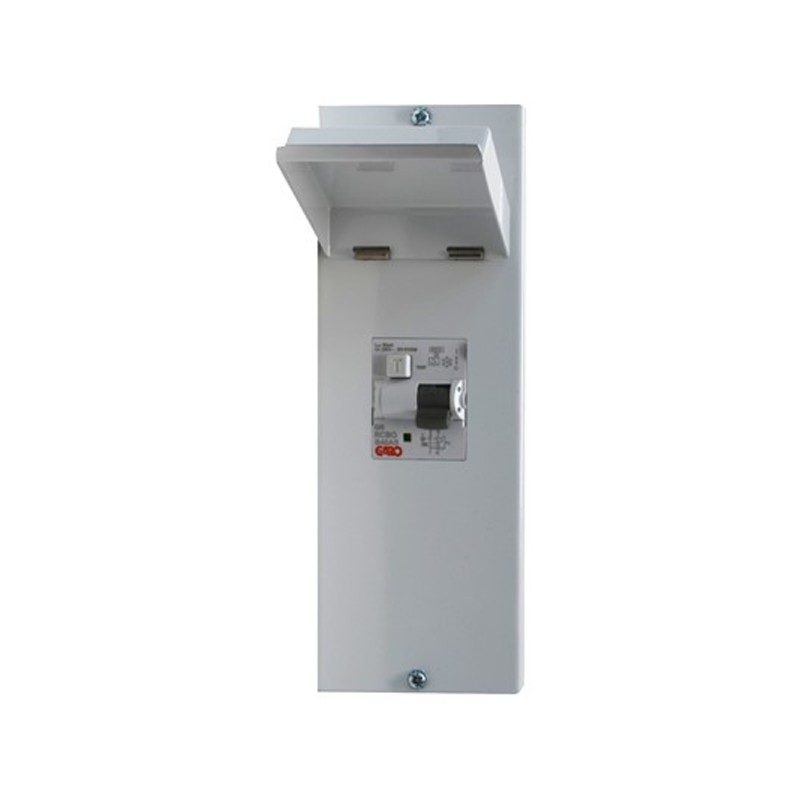The Role of Consumer Units in Reliable Energy Administration Solution
Customer units are indispensable to efficient power monitoring systems, serving as the main circulation points for electrical power within structures. The introduction of clever innovations has actually better enhanced their performance, permitting for real-time data monitoring and nuanced energy intake evaluation.
Understanding Consumer Units

Understanding the function of customer systems begins with acknowledging their necessary feature in securing electrical systems. By isolating faults within details circuits, consumer units stop extensive outages and possible fire risks. This isolation is attained through the use of circuit breakers that journey or fuses that strike when a fault is spotted, thereby cutting off the electric flow to the impacted circuit.
Additionally, consumer devices assist in the organized distribution of power, enhancing the performance of energy use. They permit the organized management of electric lots, which can be specifically essential in business and industrial settings where demand can vary considerably. Appropriately kept consumer units add to the durability of electric systems and assist in minimizing downtime triggered by electric failures, inevitably sustaining the seamless procedure of energy-dependent facilities.
Smart Technologies Assimilation

A key benefit of smart customer devices is their capability to utilize progressed formulas and artificial intelligence for predictive analytics. This permits preemptive adjustments based upon use patterns, weather projections, and other variables, significantly enhancing overall efficiency. Clever customer systems facilitate demand reaction programs, where power use can be dynamically readjusted during height periods to maintain the grid and reduce costs.
The assimilation of renewable energy sources, such as solar and wind, is also streamlined with clever consumer systems. By intelligently handling the intermittency of these sources, these units guarantee a trusted and balanced power supply. Additionally, wise consumer units boost user involvement by providing in-depth insights and remote control capabilities via mobile applications, cultivating a much more aggressive technique to power conservation and sustainability.
Monitoring Energy Consumption
Building on the capabilities of clever modern technologies integration, keeping track of energy usage comes to be a vital focus within energy management systems. Efficient monitoring acts as the foundation for identifying energy inefficiencies and implementing rehabilitative procedures. By leveraging sophisticated metering framework (AMI), real-time information on energy use can be accumulated at granular degrees, supplying beneficial insights right into usage patterns and peak need durations. This data-centric approach enables both customers and power managers to make enlightened decisions targeted at minimizing waste and boosting total effectiveness.
Smart meters and Net of Things (IoT) tools play an essential role in this surveillance procedure. These gadgets can track power use in real-time, sending information to centralized systems for analysis. The accumulated data is after that processed via advanced algorithms to identify abnormalities, anticipate future intake, and recommend optimization strategies. Additionally, cloud-based services provide scalable systems for saving and analyzing huge datasets, promoting remote monitoring and control.
The combination of these innovations not just equips consumers with comprehensive information regarding their power use yet also supports energy suppliers in taking care of load distribution more efficiently. Ultimately, exact and continuous tracking is important for achieving power efficiency, expense financial savings, and sustainability goals within power administration systems.
Optimizing Device Usage

One effective approach involves determining top and off-peak hours to move energy-intensive tasks, such as laundry or dishwashing, to times when energy need is reduced. This not only decreases stress on the grid yet also takes advantage of reduced power tolls. In addition, incorporating artificial intelligence algorithms enables anticipating upkeep, making certain devices operate at optimal performance and prolonging their lifespan.
Power management systems can likewise include user-specific choices and habits to tailor appliance usage schedules. As an example, clever illumination systems can change illumination based on occupancy and all-natural light schedule, while heating and cooling systems can keep convenience degrees without excessive energy usage.
Promoting Sustainability
Promoting sustainability within power management systems includes not just enhancing efficiency yet also cultivating eco responsible practices. Consumer systems are essential to this procedure, as they provide real-time data and control mechanisms that allow individuals to monitor and minimize their energy usage. By leveraging innovative modern technologies, customer devices can identify energy-saving chances and assist in the assimilation of renewable resource resources like solar and wind power.
One critical aspect of advertising sustainability is informing customers on the benefits of liable energy use. With in-depth understandings supplied by consumer units, customers can make enlightened decisions that decrease their carbon impact. These devices can suggest ideal times for operating high-energy devices based on grid need and sustainable energy accessibility, thereby minimizing reliance on fossil fuels.
Moreover, customer devices support the adoption of smart grid technologies, which improve the general performance and dependability of power circulation. By making it possible for two-way interaction between consumers and utility companies, these systems can dynamically get used Related Site to power needs, lowering waste and promoting making use of lasting power methods.
Conclusion
Consumer units, as indispensable parts of energy administration systems, substantially enhance electrical safety and performance within structures with circuit protection and smart innovation integration. Real-time information tracking and evaluation promoted by these systems optimize energy intake and appliance use. In addition, the unification of sustainable energy resources visit homepage promotes sustainable techniques, adding to minimized total power consumption and lower carbon impacts. Consumer devices play a crucial function in progressing both power performance and environmental sustainability.
Advances in smart technologies have actually changed the capabilities of power monitoring systems, specifically with the assimilation of smart consumer systems.Building on the capabilities of wise modern technologies integration, keeping an eye on power intake ends up being an important emphasis within power administration systems.Reliable appliance usage optimization is a critical element of power administration systems, aiming to enhance performance and minimize unneeded energy usage.Customer systems, as essential components of energy management systems, significantly improve electric security and effectiveness within structures via circuit security and wise modern technology assimilation. Additionally, the incorporation of eco-friendly power sources promotes lasting methods, contributing to minimized general power usage and reduced carbon footprints.